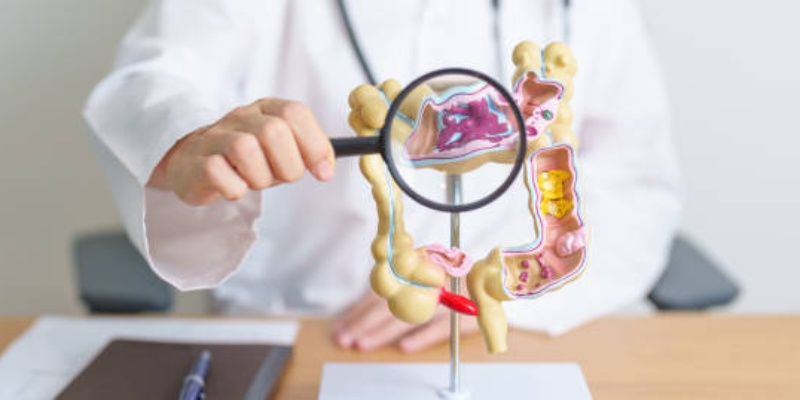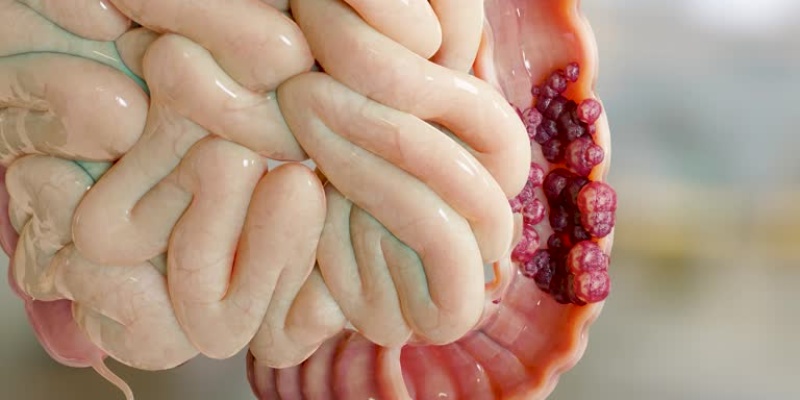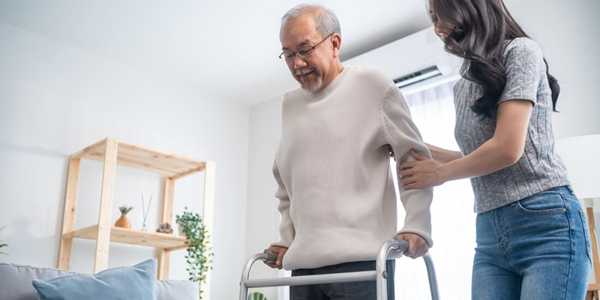At 50, it's time to start paying closer attention to preventing colon cancer. It's understandable to feel a little anxious—cancer is a scary word. But as you learn more, it becomes clear how much control we have over our health and how many steps can be taken to stay safe.
At 50, it's time to start paying closer attention to preventing colon cancer. It's understandable to feel a little anxious—cancer is a scary word. But as you learn more, it becomes clear how much control we have over our health and how many steps can be taken to stay safe.
Today, I'm going to walk you through everything I've discovered. When we finish, you'll feel informed, empowered, and enabled to take charge of your health. Let's get going!
Why Age 50 Matters
You may ask, Why 50? Most colon cancers occur in individuals over the age of 50. As we get older, our risk increases naturally. Our colon is like a car, requiring routine maintenance to function correctly. Little problems (such as polyps) can arise by middle age, and the sooner they're detected, the better. Even when we're not sick, our body may provide hints we haven't heard.

Know Your Risk Factors
First things first: understanding your risk. You can't control some things, like ageing or family history. If you have a parent or sibling who has colon cancer, you might be at higher risk. Yet, many risks are within your control. For example, eating lots of red meat or processed foods, smoking, or being sedentary can increase your risk. Being obese or having diabetes also comes into play.
Here's an easy way to remember: Think of your body like a garden. When you plant seeds (good habits), you will have healthy flowers (good health). When you ignore the weeds (bad habits), they will overrun you.
Screening: Your Best Defense
The word "screening" might make you shudder, but hear me out. Colonoscopies are the best method for detecting issues early. A doctor uses a tiny camera to examine your colon during the procedure. If he notices a polyp (a small growth), he can take it out before it turns into cancer. How cool is that?
Other tests are stool tests or CT scans. Talk to your doctor about what is best for you. I'll admit, a colonoscopy prep is not fun (that liquid. is an adventure). But a small price for peace of mind.
Changes To Lifestyle That Have An Impact
Now, tell me about daily routines. Small things build into significant results. This is what I did:
Eat More Plants
Pile your plate high with highly coloured vegetables, fruits, and whole grains. Broccoli, berries, and oats are fibre-rich, keeping your colon happy. Fibre is like a scrub brush for the inside of your body—it cleanses things.
Limit Red and Processed Meats
Hot dogs, bacon, and deli meats might be delicious, but they're linked to a higher cancer risk. Consider replacing them with chicken, fish, or plant-based protein like beans.

Move Your Body
Exercise does not need to be running marathons. Walking daily, gardening, or dancing in your living room is okay! Attempt at least 30 minutes most days.
Stop Smoking and Reduce Alcohol Consumption.
Smoking isn't just bad for your lungs—it is bad for your colon, too. Cutting back on alcohol use (or avoiding it) also lowers your risk.
Stay at a Healthy Weight
Excess weight around your abdominal area can be pro-inflammatory, a potential cause of cancer. Employ gradual, progressive weight loss when needed.
Symptoms You Shouldn't Ignore
Colon cancer is asymptomatic in its early stages, but it is essential to listen to your body. If you experience any of the following symptoms, consult your doctor:
Alterations in bowel movements, such as diarrhoea or constipation that lasts for over a week,
Blood in your stool or toilet paper
Unexplained weight loss
Constant fatigue may indicate that you're experiencing a depletion of iron. Recurring stomach pain or cramps that won't go away.
I know—it's so simple to brush these off as "just getting older." Don't. Early detection saves lives.
What If Something's Found?
If a test finds cancer, don't panic. Treatments are far better now. Surgery is generally the first step, especially if the tumour is not widespread. Sometimes, the physicians will follow up with chemotherapy or radiation to make sure that all traces of the cell are removed. The key is getting it early when it's most curable.
Your Action Plan
Ready to take control? Here’s your checklist:
Schedule a screening. If you’re 50+, do this today.
Clean up your diet. Start with one small change, like adding a veggie to dinner.
Get moving. Find an activity you enjoy—it’ll feel less like a chore.
Know your family history. Ask relatives about health issues and share this with your doctor.
Don’t skip checkups. Even if you feel fine, regular visits matter.

Taking Charge Of Your Health After 50
Turning 50 isn't just about grey hairs and reading glasses. It's a chance to prioritize your health in new ways. Colon cancer prevention isn't glamorous, but it's one of the most important gifts you can give yourself. By making wise choices today, you're building a healthier tomorrow.
Remember, you’re not alone in this. Doctors, friends, and family are here to support you. So take a deep breath, schedule that screening, and keep putting yourself first. You’ve got this!
And there you have it—your roadmap to staying healthy. Here’s to many more vibrant, cancer-free years ahead!
- Share this article:
-
![10 Essential Senior Care Tips for Families]() Health & Medical Treatment
Health & Medical Treatment - 10 Essential Senior Care Tips for FamiliesCaring for an ageing loved one is like navigating a maze. You want to do your best, but feeling overwhelmed is easy. Over the years, I've learned that small, thoughtful steps can make a big difference. Whether you're helping a parent, grandparent, or neighbour, these tips will help you create a safer, happier life for the seniors in your care.
-
![Top Night Skincare Secrets For Younger-Looking Skin]() Beauty
Beauty - Top Night Skincare Secrets For Younger-Looking SkinHave you used high-quality skincare products, yet your skin appears lifeless and exhausted? Would you like to get rid of your fine lines? Or would you like to wake up with moisturized and radiant skin? Taking care of your skin at night is the solution.








